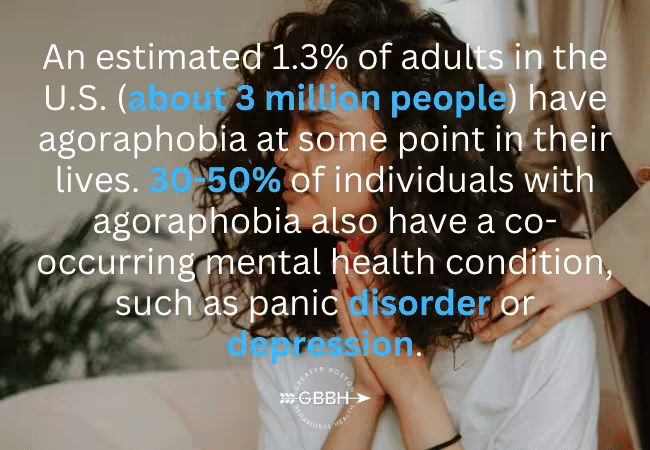Social anxiety and agoraphobia are two mental health illnesses that have some similarities but differ significantly in their cause, symptoms, and effects. While both include a dread of specific settings or events, the underlying causes and experiences with each illness might differ significantly.
Thus, understanding the distinctions between social anxiety and agoraphobia is critical for anyone suffering from both diseases, as well as their friends and loved ones. So, let’s take a closer look at each to see what distinguishes them and how each condition can be effectively addressed.
Social Anxiety Disorder
Social anxiety disorder (SAD) is defined by a strong fear of social situations in which a person believes they will be judged, embarrassed, or humiliated. People with social anxiety frequently avoid situations like public speaking, meeting new people, attending social gatherings, and completing activities in front of others.
Here are some key symptoms
- People frequently worry excessively about what others think of them and are afraid of being regarded poorly.
- To avoid potential embarrassment, people with social anxiety may avoid situations where they must engage with others, such as parties, meetings, or even simple exchanges like small chat.
- Sweating, blushing, shivering, and a high heart rate are frequent physical sensations associated with fearful social settings.
- Many people suffer from social anxiety because they are afraid of doing something embarrassing, such as saying the wrong thing or appearing awkward.
Agoraphobia
Agoraphobia, on the other hand, is defined as a severe fear of situations in which escape is impossible or assistance is not readily available. People who suffer from agoraphobia are afraid of becoming stuck or stranded in circumstances they consider to be harmful, such as crowded locations, open areas, or situations distant from home.
Here are some key symptoms
- Fear of specific locations or situations such as malls, congested neighborhoods, public transit, and being alone outside the home.
- People frequently avoid places where they believe they might be trapped. In severe cases, people may avoid leaving their homes entirely.
- Agoraphobia, like social anxiety, can cause physical symptoms such as dizziness, perspiration, and shortness of breath.
- People may suffer anxiety before they meet the feared circumstance. This “fear of fear” can cause people to avoid some locations.
Overall, social anxiety is primarily concerned with the dread of social judgment. While agoraphobia is more concerned with the fear of physical imprisonment or powerlessness than with any specific social engagement.
Treatment Options for Social Anxiety and Agoraphobia
- Cognitive Behavioral Therapy: CBT for social anxiety focuses on reducing anxieties of social judgment, whereas agoraphobia addresses fears of imprisonment or helplessness.
- Medications: Selective serotonin reuptake inhibitors (SSRIs), anti-anxiety medicines, and beta-blockers may be recommended to help with symptoms.
- Lifestyle Changes: Exercise, mindfulness practices, support groups, and family participation can all help manage social anxiety and agoraphobia.
- Support groups: Provide a secure area for people to share their stories and get support from others who are facing similar issues.
Finding the Right Treatment and Support? Join GBBH Today!
If you’re looking for effective help for social anxiety, or other life issues, we at GBBH provide a variety of services, including personalized counseling, group therapy, and resources suited to your specific requirements. Our expert team creates a secure, supportive environment in which you may process your emotions, build resilience, and restore hope. Join GBBH today and experience the therapeutic power of connection and direction as you move towards a more balanced future. Call us at (888)278-0716 today to learn more about our services and how we can help you on your journey to recovery!


